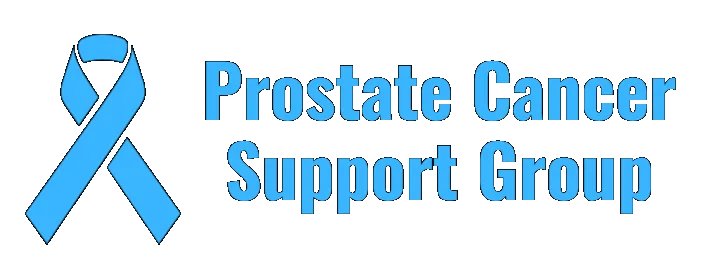Finding Clarity and Certainty in Your Recovery After Prostate Cancer Surgery
April 16, 2025, by Coach Brian McCarthy

"As you heal, remember that uncertainty is part of the process. Seek out the small victories; they are the steppingstones to finding your strength and purpose anew." - CLC Brian McCarthy
Did you know that nearly 30% of men experience anxiety and uncertainty following prostate cancer surgery? Navigating the recovery process can feel overwhelming, but it doesn't have to be. This article will explore effective strategies to help you find clarity and certainty during this critical time. By understanding the common challenges and knowing what to expect, you'll be better equipped to embrace your journey toward healing.
Introduction
Undergoing major prostate cancer surgery and treatment is a life-altering experience. It’s not just a physical journey but an emotional and mental one, too. As you navigate recovery, one of the most powerful steps you can take is to gain clarity and certainty about your goals for healing and functionality. This process can feel overwhelming, but with intentional steps, you can define a path that aligns with your values and aspirations. Here’s how to approach it.
1. Acknowledge the Journey and Your Starting Point
Recovery from prostate cancer surgery—whether it’s a prostatectomy or other interventions—often involves managing side effects like incontinence, erectile dysfunction, fatigue, or emotional shifts. The first step toward clarity is accepting where you are without judgment. This isn’t about dwelling on limitations but about understanding your baseline so you can set realistic, meaningful goals.
Actionable Tip: Journal or reflect on your current physical and emotional state. Ask yourself: What challenges am I facing? What aspects of my life (e.g., intimacy, daily activities, mental health) matter most to me right now? This reflection grounds you in the present and highlights priorities.
2. Define What “Functionality” Means to You
Functionality after prostate cancer treatment is deeply personal. For some, it might mean regaining bladder control to enjoy social outings without worry. For others, it could involve restoring sexual function or simply having the energy to play with grandchildren. Clarity comes from defining what functionality looks like for you.
Actionable Tip: Create a “vision board” (mental or physical) of your ideal recovery outcomes. Write down specific scenarios, like “I want to walk 30 minutes daily without fatigue” or “I want to feel confident in my intimate relationships.” Be specific but flexible—your goals may evolve.
3. Collaborate with Your Healthcare Team
Your medical team is a vital partner in shaping your recovery goals. Urologists, physical therapists, life coaches, and counselors can provide insights into what’s achievable based on your surgery, treatment, and overall health. Ask questions like:
• What is the typical recovery timeline for my specific procedure?
• What exercises or therapies can improve continence or sexual function?
• Are there medications, devices, or lifestyle changes that could help?
Actionable Tip: Prepare a list of questions before appointments and bring a trusted friend or family member to take notes. This ensures you leave with clear, actionable information to guide your recovery plan.
4. Break Goals into Manageable Steps
Big goals, like regaining full continence or sexual function, can feel daunting. Break them into smaller, measurable steps to build momentum and confidence. For example:
Goal: Improve bladder control.
Step 1: Practice pelvic floor exercises (Kegels) 3 times daily for 2 weeks.
Step 2: Track progress by noting leakage incidents weekly.
Step 3: Consult a pelvic floor therapist if progress stalls.
Goal: Restore intimacy.
Step 1: Have an open conversation with your partner about expectations.
Step 2: Explore medical options (e.g., PDE5 inhibitors) with your doctor.
Step 3: Focus on non-physical intimacy, like emotional connection, as you rebuild.
Actionable Tip: Use a planner or app to track your daily or weekly steps. Celebrate small wins, like reducing pad use or completing a therapy session, to stay motivated.
5. Address Emotional and Mental Clarity
Prostate cancer recovery isn’t just physical—it’s emotional. Anxiety, depression, or uncertainty about masculinity and identity are common.
Gaining clarity means addressing these feelings head-on. Consider:
• Therapy, coaching, or Counseling: A professional specializing in cancer recovery can help you process emotions and set mental health goals.
• Support Groups: Connecting with other prostate cancer survivors offers perspective and camaraderie. Hearing others’ stories can clarify what’s possible.
• Mindfulness Practices: Meditation, deep breathing, or gratitude journaling can reduce stress and sharpen focus on what matters.
Actionable Tip: Join a local or online prostate cancer support group (e.g., through the Prostate Cancer Foundation or Us TOO). Share one goal or concern in your first meeting to build connection.
6. Embrace Flexibility and Patience
Recovery is rarely linear. There will be setbacks—days when leakage persists, or fatigue feels overwhelming. Certainty doesn’t mean rigidity; it means trusting that you’re moving toward your goals, even if the path shifts. Adjust your expectations as needed and focus on progress over perfection.
Actionable Tip: At the end of each month, reflect on what’s working and what isn’t. Tweak one goal or habit (e.g., adjusting exercise frequency) to keep your plan aligned with your needs.
7. Build a Support System
Clarity and certainty grow stronger with support. Lean on loved ones, friends, or fellow survivors who can cheer you on and hold you accountable. Share your goals with them so they understand how to support you—whether it’s joining you for walks or simply listening.
Actionable Tip: Identify one person you trust to be your “accountability partner.” Check in weekly to share progress and challenges.
8. Celebrate Your Resilience
Every step you take—whether it’s a stronger pelvic floor, a meaningful conversation with your partner, or a day with less worry—is a testament to your resilience. Prostate cancer surgery may have changed your body, but it doesn’t define your future. By setting clear, intentional goals, you’re reclaiming control and building a life that reflects your strength and values.
Final Thought:
Recovery is a marathon, not a sprint. Take it one goal, one day, one victory at a time. You’ve already faced the challenge of prostate cancer—now, you’re shaping what comes next.
Disclaimer
Coach Brian McCarthy is a certified Life Coach but is not a doctor; please consult your own medical team before starting something, stopping something or making changes to your prostate cancer battle plan.
Next Steps
Let us be your beacon of hope during this challenging journey. From emotional support to practical strategies, we tailor our coaching sessions to help you manage the roller coaster of emotions that come with dealing with prostate cancer. Together, we’ll empower you to stay strong, resilient, and optimistic in the face of adversity.
Use the calendar below to book your complementary discovery call on ‘Finding Clarity and Certainty in Your Recovery After Prostate Cancer Surgery’ or to discuss our coaching services for you and your family.
Don’t wait… your mental well-being matters just as much as your physical health – let us walk beside you every step of the way! – book your FREE conversation to discuss how we can help you today!

